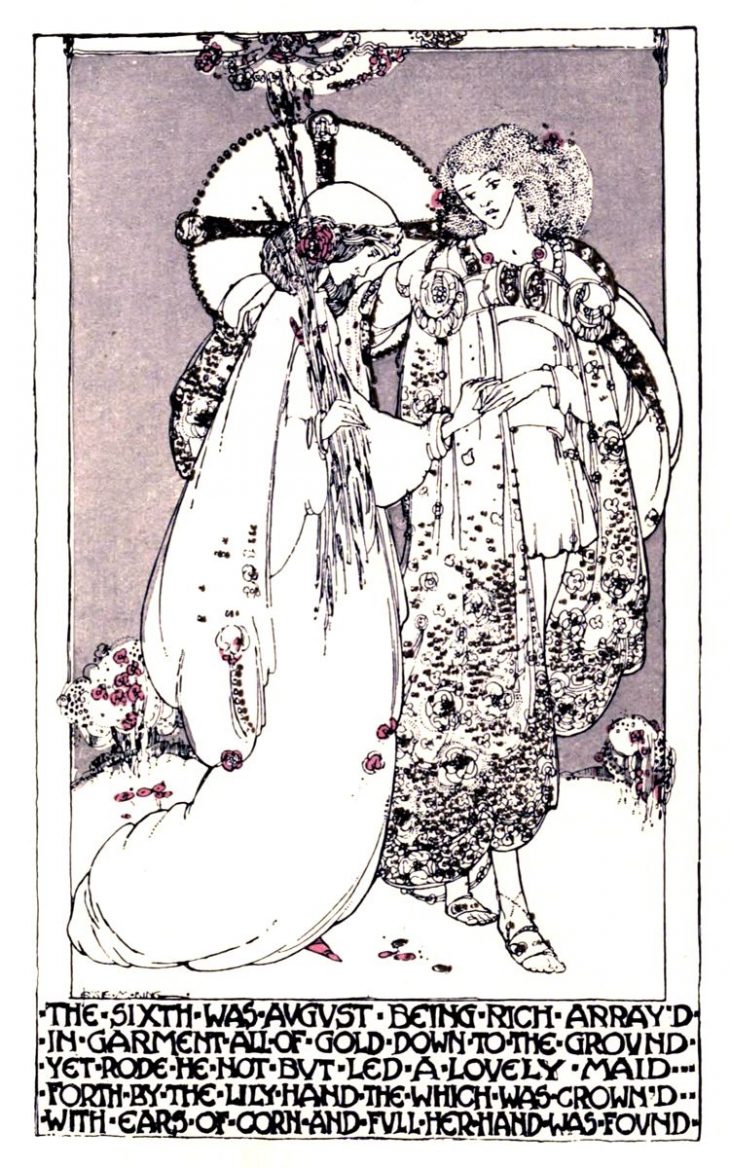
Word of the Day: Mutable
Today’s word of the day, courtesy of the Bronx Chronicle, is mutable, an adjective meaning “Capable of or tending to change in form or quality or nature…changeable” (https://thebronxchronicle.com/). According to www.dictionary.com, it means, “liable or subject to change or alteration; given to changing; constantly changing; fickle or inconstant.” According to www.etymonline.com, mutable entered the English language in the “late 14c., ‘liable to change,’ from Latin mutabilis ‘changeable,’ from mutare ‘to change,’ from PIE root *mei- (1) ‘to change, go, move,’ with derivatives referring to the exchange of goods and services as regulated by custom or law (compare Latin mutuus ‘done in exchange’).”
In 1609, a new edition of Edmund Spenser’s half-completed epic The Faerie Queene was published in London, perhaps edited by Spenser’s friend Gabriel Harvey. I say “half-completed” because in Spenser’s original conception of the work there were to be 12 books, each one an allegory. But Spenser died in 1599, before he could finish his epic.
But when Gabriel Harvey published his friend’s enormous work, the longest poem in the English language, he added two cantos and a few verses from a third. He called them “Two Cantos of Mutabilitie.”
As in the rest of The Faerie Queene, a characteristic, in this case mutability, is also a character. Here is the summary made by Encyclopedia Britannica:
After wreaking havoc on earth, overthrowing the laws of nature, justice, and policy, the poem’s central figure, the ambitious Titaness Mutabilitie, hopes to extend her reign to the heavens themselves. She denies the authority of Jove, whose reign is marked by order and beneficence. On Arlo’s Hill (Spenser’s Irish home), Dame Nature presides over the conflict between titaness and god; she concludes that all things in life may fluctuate, but their essence remains constant.
Elizabeth Healy writes, at “The Faerie Queene: A Reader’s Guide” (https://www.cambridge.org/core/books/faerie-queene-a-readers-guide/mutabilitie-cantos/D4D057E11BD349DB8DAA6D30F4A6400A#), “The ‘Two Cantos of Mutabilitie’, with a fragmentary third, were first published in 1609, ten years after Spenser’s death, with the note that they ‘both for Forme and Matter, appeare to be parcell of some following Booke of the Faerie Queene, under the Legend of Constancie’. No more is known about them than that. Even the division into cantos may not be by Spenser himself. The stanza form, the theme and the mode of these cantos all suggest that they are a continuation of the main poem, possibly the ‘core cantos’ of a seventh book, with as rich a mixture of philosophy, myth and allegory as the Garden of Adonis (3.vi) or Colin Clout’s vision of the Graces (6.x).
It’s helpful to know that, during the Middle Ages and Renaissance, when poets talked about the god Jove, they often were using the name metaphorically, that they were really talking about God. It may also be helpful to know, when reading or at least contemplating the Mutability Cantos, that Spenser believed that he world was on a downhill trajectory. Like so many poets and philosophers throughout the centuries, he believed that there was a past Golden Age, and before that the Garden of Eden, the Earthly paradise. In other words, there was a time when men were noble and the Earth was good, but things were getting worse and worse and would continue to do so until Christ returned again in triumph to “resurrect the quick and the dead.” Hence mutability was a bad thing, indicating change away from God’s paradise and toward chaos.
And Spenser’s Mutabilitie, the character, was likewise bad, wanting to extend the reign of chaos from Earth all the way to Heaven.
But Spenser’s judge, Dame Nature, realizes that change is normal and that while there may be change, the essence of things remains constant. God doesn’t change even though our perception of Him may change and the world around us may change. Personally, I believe that the Earth is a better place to live than it has even been in human history. In fact, if the principles and love espoused by Christ were to be accepted universally, the world would be ready to accept the Kingdom of God.
The image is from a publication of Spenser’s Mutability Cantos in 1906 (https://www.pinterest.com/pin/90212798760605682/).